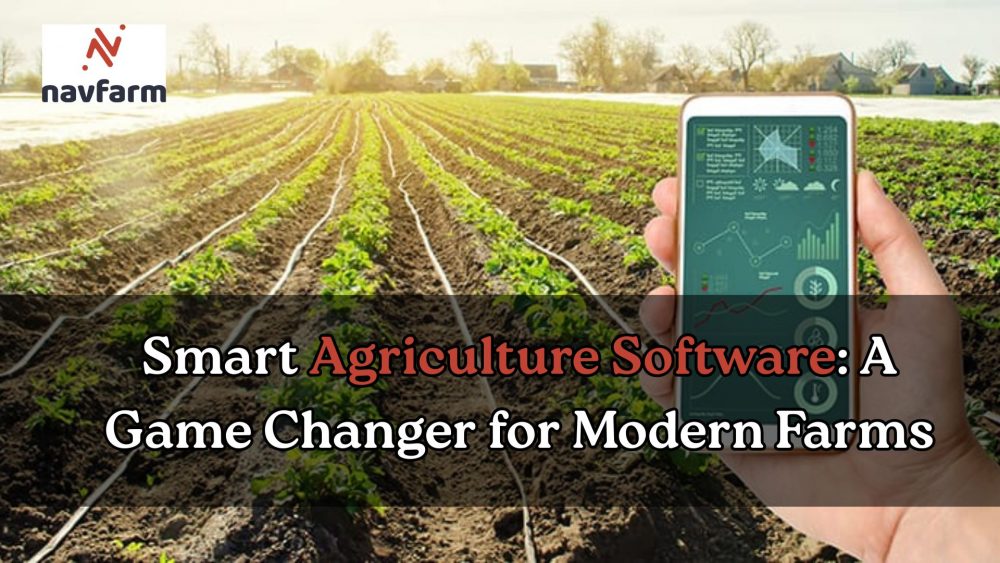In our fast-paced world, agriculture is not only confined to manual labor and traditional methods. While technology has affected every industry, agriculture is no different. Farmers today are looking into Agriculture Software to increase efficiency in operations, resources, and productivity. Agriculture Farm Management systems are some of the tools making agriculture easier, smarter, data-driven, and highly efficient.
What Is Agriculture Software?
Agriculture Software is an electronic platform that is technology-based that helps farmers, farms, agribusinesses, and cooperatives manage all aspects of farming and farming businesses. Agriculture Software facilitates all farming-related activities; every single aspect of agricultural work, through crop planning, soil/field monitoring, livestock care, supply chain, etc. Farmers have the ability to manage progress, analyze data, and make decisions with less guesswork than previous methods of farming.
Why Agriculture Software Matters Today
Demand for food continues to rise worldwide while arable land and natural resources decrease. Farmers will need to produce more food for a growing population using increasingly limited resources. Agriculture Software helps address this gap by:
• Automating farm processes
• Improving accuracy in monitoring crops and livestock
• Reducing costs by better allocation of resources
• Supplying real-time data to support improved decision making.
Integrating agriculture with technology solutions, agriculture provides farmers with the capacity to address difficulties such as climate change, and limited water and labor.
Agriculture Farm Management: A Comprehensive Approach
One notable function of Agriculture Software is Agricultural Farm Management. Instead of dealing with lots of separate tools and written records, farm management software manages everything in one location.
Key Features of Agriculture Farm Management:
1. Crop Planning and Monitoring
Farmers can make a plan for when to sow crops, how crops are growing, and the yields by using predictive analytics.
2. Livestock Management
If the farm has livestock, the software allows for more complete tracking of feeding, breeding cycles, and overall health.
3. Resource Utilization
Control costs for water, fertilizer, labor, and equipment in a way that saves farmers money and supports a sustainable system.
4. Financial Management Solutions
Track profits expenses, and revenues will built-in financial functionality.
5. Data Insights for Decision-Making
Farmers can view reports and analytics as support for business direction.
Benefits of Using Agriculture Software
- Increased Productivity
Insightful data and automation enable farmers to produce more crops with less input.
- Enhanced Sustainability
Resource efficient farming creates less waste and helps farmers become more sustainable.
- Reduced Input Costs
Farmers save money by reducing inputs and optimizing their operations.
- Continuous Monitoring
Know exactly what is going on in your field, livestock, and weather in real-time with sensors and dashboards.
- Better Supply Chain Connectivity
From production to distribution, Agriculture Software improves connections between farms and markets.
The Future of Smart Farming
The global adoption of Agricultural Software and Agricultural Farm Management Systems is on the rise. In addition, ag-tech innovations facilitated by artificial intelligence (AI), Internet of Things (IoT), and machine learning technology are more widely being employed in agricultural to improve automation and efficiencies. Smart farming solutions enhance the experiences of individual farmers as well agriculture as a whole through food security, food quality, and sustainable agriculture.
Conclusion
Agriculture is advancing, and the adoption of technology is now a necessity as opposed to an option. Farmers are utilizing Agriculture Software and Agriculture Farm Management systems to improve production, use resources more efficiently, and improve profitability. Farmers using these smart solutions will also prepare their farms for the future and create ways to succeed for generations to come.
